How clean, composed, and trustworthy politicians like for us to think they are. It’s no wonder We The People lap up every juicy scandal and obsess over every slip up. Sometimes we hope a faux paus by the opposition will be a key to victory for our party, and reveal what scum the their leader was. Other times we consider it a humanizing, relatable mistake that all citizens find it in themselves to forgive for the public good, but really because it’s a mistake made by a member of our party.
Then sometimes we learn about sides of certain politicians that we’re all astounded didn’t sink their careers during campaign season. Both sides are left baffled by how opposition research didn’t find out this aspect of the politician and spread word far and wide that they’re unfit for high office, instead of letting them achieve international fame and fortune. Around the world, in areas both liberal and conservative, you’ll find politicians in the limelight getting away with this kind of craziness.
10. David Cameron

David Cameron was the Prime Minister of the United Kingdom from 2010 to 2016. There is a huge amount of controversy surrounding him since he called for the problematic Brexit Referendum, but this entry isn’t about that. This entry is about his very particular approach to breakfast.
In 2017, Tory MP Jake Berry revealed how he’d once spent the night at Cameron’s place after a Conservative Party event. The next morning, Berry found a plate with toast piled high on it and the crust removed, and helped himself. Cameron came down shortly after, and an unusually intense spat broke out over how Berry shouldn’t have eaten those particular slices of toast with the crust removed. It seemed that Cameron had a specially designated toast peeler to help get the day going. That seems a level of decadence quite unlike a “man of the people” as Cameron styled himself.
9. Kim Jong-il

The dictator of North Korea from 1994 to 2011, there was plenty of time for stories about how oddly he was governing his country. They range from his supposed extreme fear of flying to being willing to kidnap a South Korean film director and his actress wife to make propaganda films. One of his more humanizing eccentricities was his extreme interest in food, according to his former chef Kenji Fujimoto. Not out of some paranoia that he would be poisoned, but culinary tastes that were far more precise than the average person’s.
One chef said that Kim Jong-il was capable of noticing as little as a few grams of sugar less being used in a banquet batch of sushi. He also was known to personally inspect his rice. He looked through it grain by grain for size, shape, and quality. Not that he was just a fussy eater. He enjoyed eating fish that was so fresh that their tails would still be flopping in his mouth.
8. Beto O’Rourke
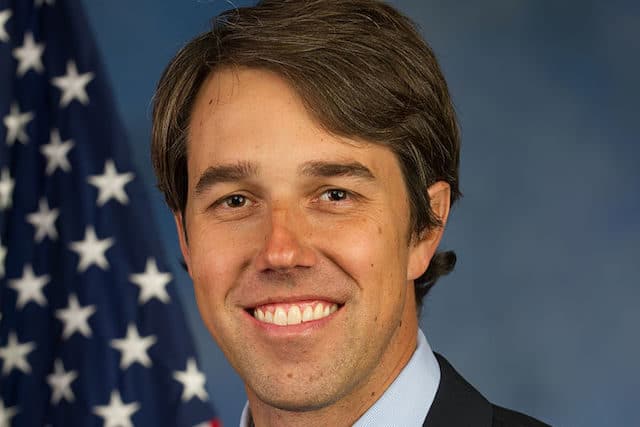
Beto O’Rourke became famous on the national stage for coming within two points of defeating Ted Cruz for a US Senate seat in Texas during the 2018 midterm election, an act considered near unthinkable for such a conservative state. In 2019 he decided to run for president. That same year, it came out that O’Rourke had written something deeply unnerving when he was a teenager.
The piece in question was an internet forum post from when he was 15-years-old. It was about running down children with his car because, as he put it in the post, “They were happy, happy to be free from their troubles” when O’Rourke — or at least his fictional surrogate in the story — felt their happiness was his by right. Some might consider feeling that sort of irrational anger and venting it through the medium of fiction a common part of the adolescent experience, but O’Rourke himself said that the post coming to light might hurt his presidential aspirations.
7. Dana Rohrabacher
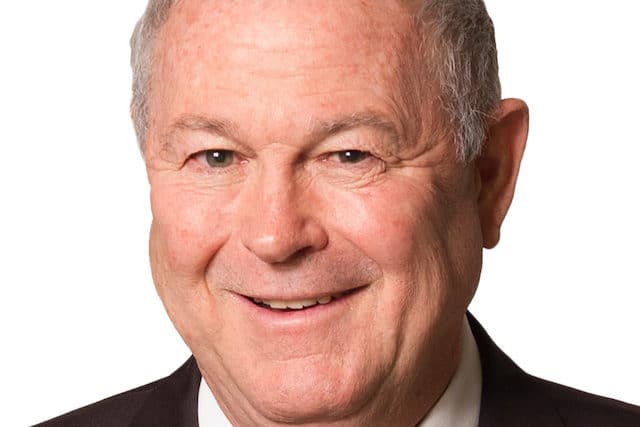
A former member of the US House of Representatives from Orange County, Dana Rohrabacher became notorious for close ties to the Russian government that lasted for decades, such that in 2012 the FBI identified a special Kremlin code name for him. But in 2013, something came to light which makes his ability to get reelected a touch bewildering. In 2010 he had moved into a million-dollar rental home near the Pacific Coast and wrecked it in a staggering number of ways that seemed to imply a concerted effort to trash the home he spent more than $3,000 a month on.
For example, to quote OC Weekly, “The ceilings showed smoke damage. Light switches had been cracked. Clumps of hair and remnants of what may have been balloons or some other rubbery material clogged sinks.” Even worse was how a second story bedroom “contained a huge, mysterious, lubricant-like stain … that had seeped through thick carpet and padding to tarnish a hardwood floor … A wooden chair in the back yard had been crushed, and phone lines were strangely severed.” But the real topper is “… Walls inexplicably contained odd holes, nail polish, wax and some smelly substance that may have been feces.” After leaving more than $25,800 worth of damage, Rohrbacher hired a lawyer to sue his landlord for not refunding his deposit promptly enough.
6. Lyndon Johnson
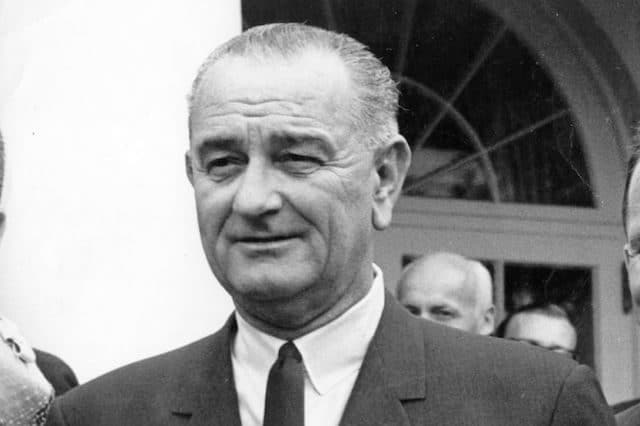
Celebrated for his actions regarding civil rights and condemned for his leadership regarding the Vietnam War, Lyndon Johnson will inspire controversy for decades to come. Not for nothing was there the 2016 Tony award-winning production All the Way, starring Bryan Cranston, that dramatized his accomplishments in the White House. He was by many accounts a mean, manipulative man who still accomplished much that has had profound influence for decades through careful compromise. As he put it, “You don’t bring nice to a knife fight.”
One area where Johnson would be a public relations disaster today would be his curious habit of urinating in public. It did not matter if he was traveling and people with cameras were around, he would still do it. As reported on PBS in 1998, there were pictures in private collections of him doing this across Texas, but publication standards at the time kept them out of the magazines and pretty much saved his career.
5. Winston Churchill
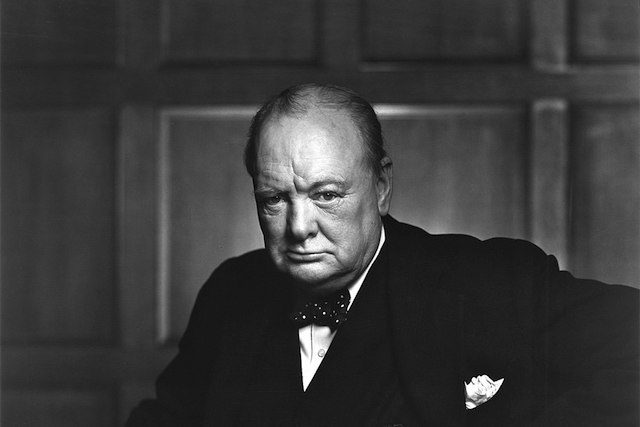
The reputation of this two-term Prime Minister for Great Britain seems like it will always be in flux. In the 1910s he’ll be the architect of the Gallipoli quagmire. In the 1930s he’ll be out of political office entirely. Then in the 1940s he’ll see Britain through its Darkest Hour but lose reelection in 1945. But he’ll be re-elected in 1951, then years later there will be controversy over how accountable he was for a 1943 famine in Bengal, and so on, and so on. That he had a very peculiar habit is apparently beyond dispute.
While many men are comfortable with their bodies, Churchill took it further than most and around very high-ranking company. Numerous attendants and functionaries, such as his secretary Patrick Kinna and his bodyguard Walter Thompson, report that Churchill was blase about walking around nude, to the extent he would dictate official documents during or after baths. One person who got to experience this up close and personally was Franklin Roosevelt, who evidence shows had multiple encounters with Churchill while the Prime Minister was nude in the White House. As Churchill was said to have quipped in his characteristic style during the first of these encounters, “The Prime Minister of Great Britain has nothing to conceal from the President of the United States.”
4. Mao Tse-tung
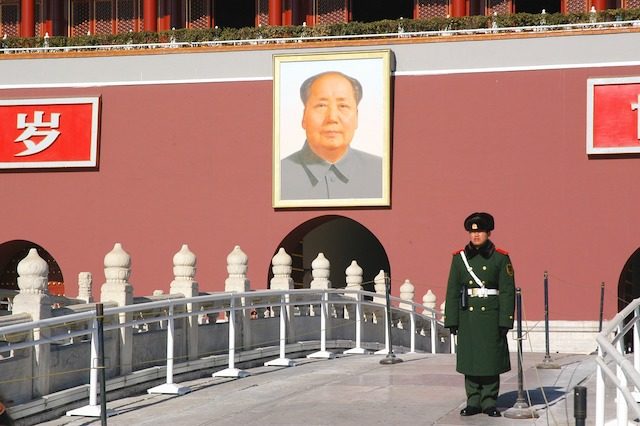
Some estimates put Mao in the running for the deadliest leader of a nation in world history. His “Great Leap Forward” agricultural program being blamed by some with causing forty million Chinese citizens to starve to death from 1959 to 1961. To be sure, he became chairman of the People’s Republic of China in 1949 under much more difficult circumstances than many leaders would ever face (China had just been devastated by the Sino-Japanese War, there was a civil war shortly after that ended, etc), so such grievous blunders are more understandable in a country full of desperate people rocked by deadly turmoil. No such excuses can be made for his personal habits.
In the words Dr. Li Zhisui, his personal physician of twenty-one years, Mao never bothered to wash his hands, face, or the rest of his body. He also never brushed his teeth, thinking that merely drinking a cup of tea in the morning was sufficient. When Zhisui suggested the Chairman try it, he rejected the idea saying “a tiger never brushes his teeth.” Pity the poor women that Mao kept as mistresses, of which there were a good many. About the only solace they had was that their leader had a personal pool to go swimming in.
3. Calvin Coolidge
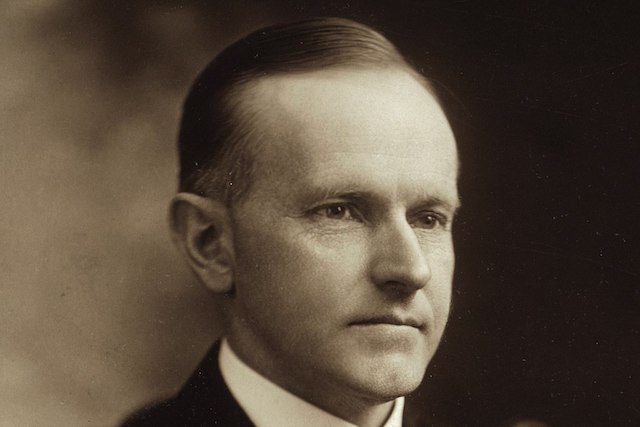
President for one and a half terms from 1923 to 1928, “Silent” Calvin Coolidge is remembered for not being a particularly active. He announced in advance that he wouldn’t campaign for a second full term, and even before then was considered an unusually small government president. After all, the most famous anecdote regarding him as a person was about a constituent betting that she could make him say three words and him responding “you lose.”
One thing that could apparently get Coolidge to expend some energy was curtains. In the wake of his attempt to appoint an attorney general being rejected by the senate, Coolidge removed the cord from the Oval Office anteroom curtains and started tying it in knots to relieve stress. Other times he would buzz his staff in over and over and hide behind the curtains when they came in. There are sources that state his preferred hiding space was actually under his desk. Whichever the truth was, there was clearly more going on beyond than the taciturn persona conveyed.
2. Joseph Stalin
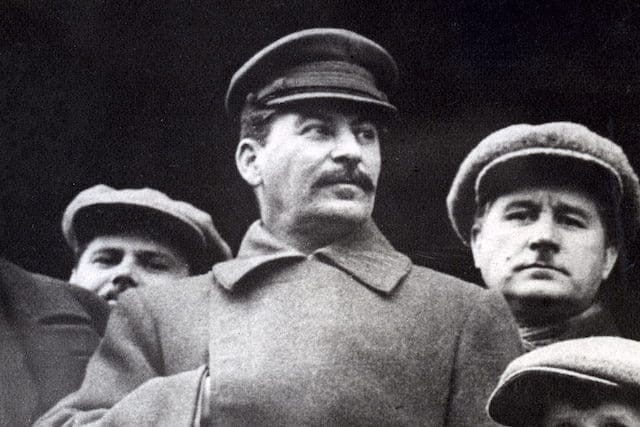
At the risk of courting controversy, Top Tenz’s official position on Joseph Stalin and his reign over the Soviet Union from 1928 to 1953 is “thumbs down.” If you need a refresher, the reasons why are outlined here. Unfortunately, unethical men can sometimes be the most interesting, and in his case there were a number of curious quirks brought on by his contradictory lack of decorum and extreme paranoia.
According to multiple sources, Stalin had a Lyndon Johnson-esque lack of concern about other people being around when he went to the bathroom. Simon Montefiore’s biography Stalin: The Court of the Red Tsar has an anecdote about how once, surrounded by his usual traveling companions, Stalin went to the bathroom on some railroad tracks. In the memoirs of Nikita Khrushchev, Stalin’s successor describes how he once saw the man of steel give one of his bodyguards a severe dressing down for the trespass of not accompanying him into the bathroom. Stalin’s paranoia regarding his other end went beyond having a single food taster: Everyone who attended one of his dinners was required to have a sampling of it before the comrade himself would dig in. Khrushchev’s interpretation of this was it was Stalin’s way of projecting his constant murder fantasies onto everyone else.
1. Richard Nixon
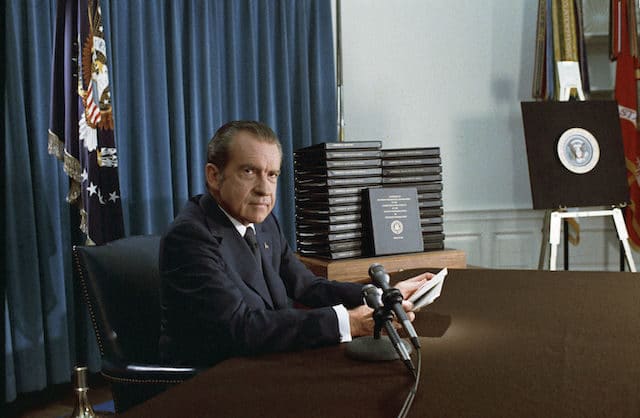
On the subject of politicians coping with extreme paranoia, we’ll be finishing this list with the President of the United States from 1969 to 1974, ol’ “Tricky” Dick Nixon. His paranoia supposedly was largely a result of his actions to prolong the Vietnam War for political gain (as President Lyndon Johnson was aware). However much that act of sabotage truly led him down the path to resignation, he would fill his time while stewing over his fate in a decidedly odd way.
In the wake of the initial press release of the Watergate Scandal, Nixon went to Camp David. While there, he began compulsively writing fantasy versions of what he felt would be the best baseball teams of all-time. The players came from different time periods and leagues as he saw fit. (So basically, in essence, he created an early version of WhatIfSports?)
Sports seemed to be one of Nixon’s true joys in life. In 1968 he had Hunter S. Thompson accompany him on his ride through New Hampshire pretty much exclusively because Thompson was the only available journalist who knew anything about football. Thompson was someone who said of the president that he had “serious doubts he could pass for human.”
Dustin Koski is the author of the novel Not Meant to Know, a story of rogue exorcists.